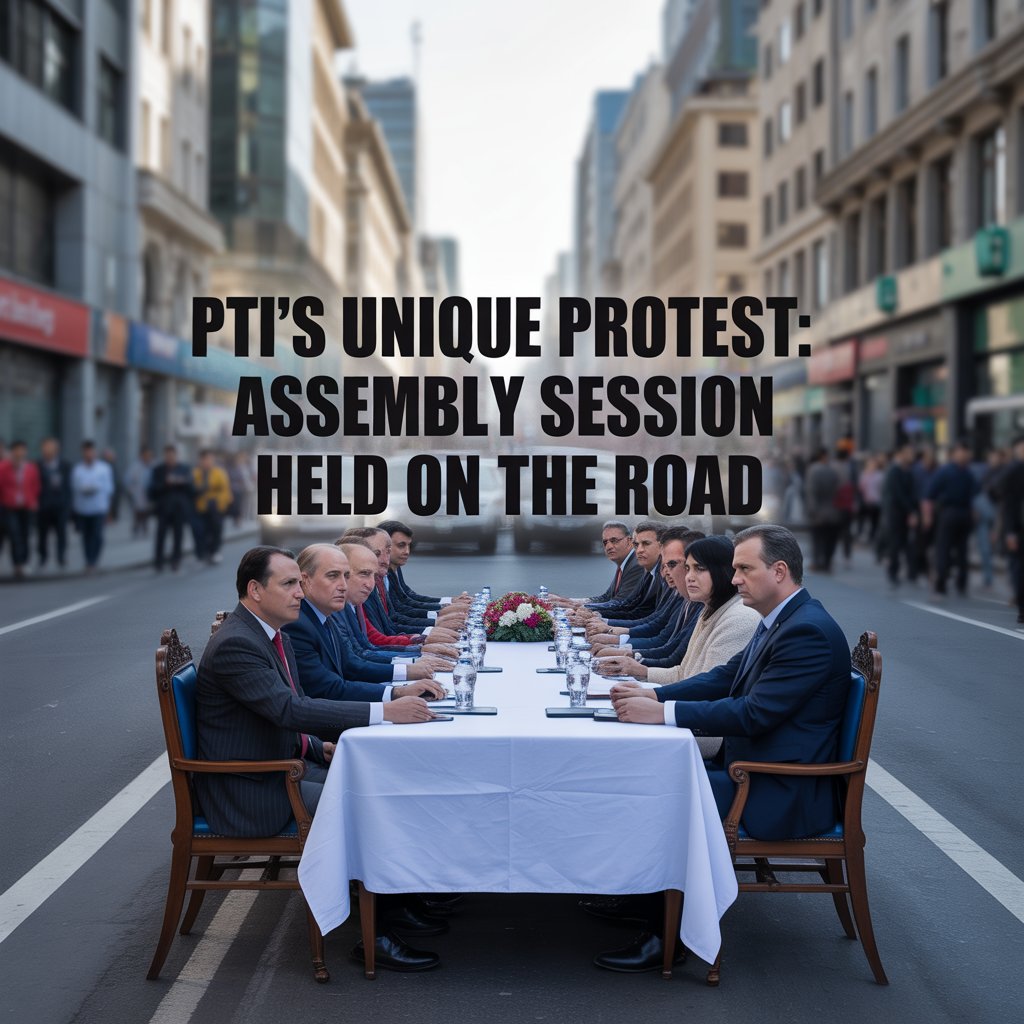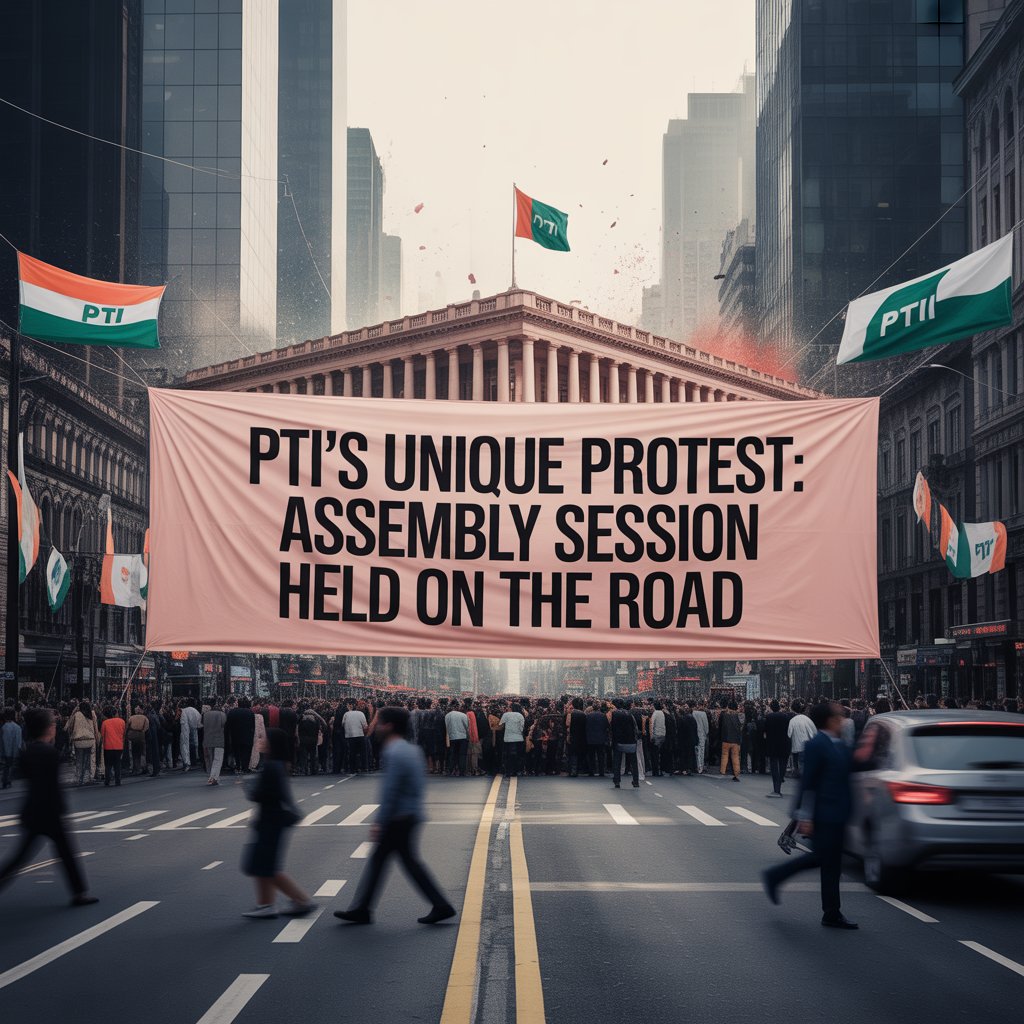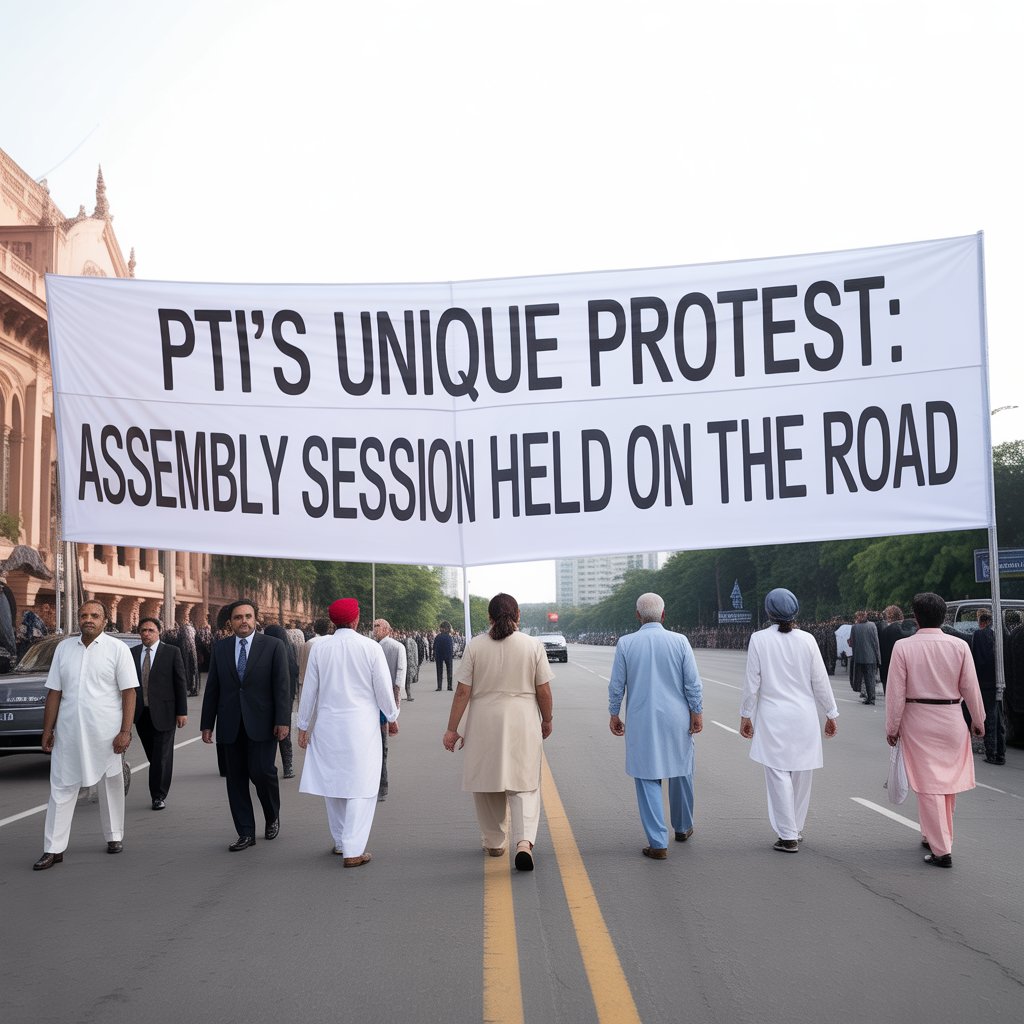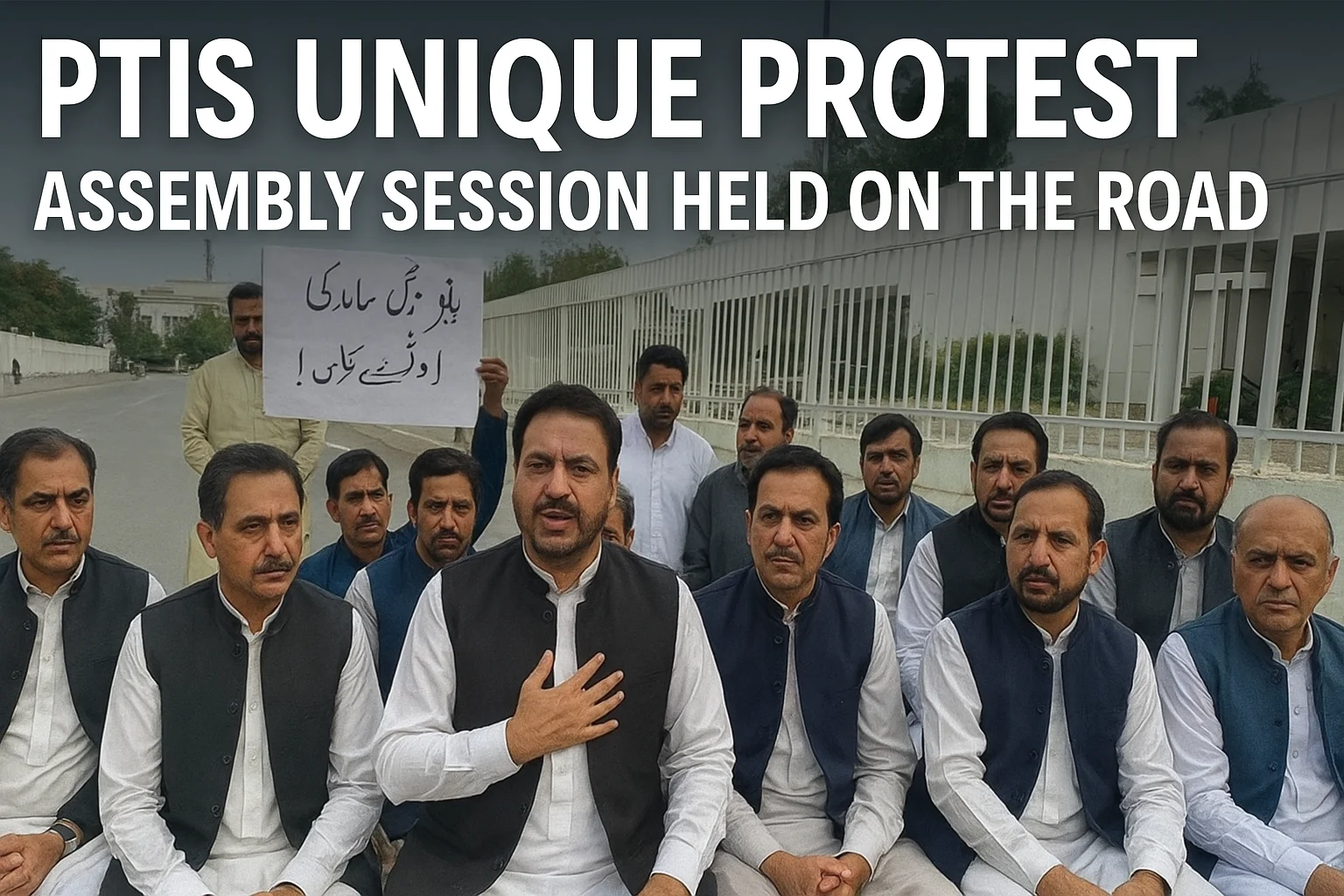PTI’s unique protest: assembly session held on the road sparks global debate. Explore risks, opportunities, and U.S. impacts in this in-depth analysis.
Pakistan Tehreek-e-Insaf (PTI) staged a unique protest by holding an assembly session on the road. Videos of this unusual act went viral and sparked global conversations. For U.S. readers, this reflects how democratic protests in South Asia mirror larger struggles for political freedom and accountability.
The event attracted worldwide media coverage. Supporters called it a bold statement against political restrictions, while critics dismissed it as a dramatic stunt. Yet, PTI’s unique protest highlights deep-rooted governance challenges. Understanding its broader effects helps international audiences see how political shifts in Pakistan may influence trade, diplomacy, and global democracy.
Global Economic Impacts of PTI’s Unique Protest: Assembly Session Held on the Road
Political unrest in South Asia often impacts global markets. Pakistan’s instability affects regional trade routes, energy pipelines, and U.S. business interests. A roadside assembly may look symbolic, but it signals growing economic uncertainty for global investors watching Pakistan’s policy climate.
The U.S.-Pakistan trade relationship, valued at nearly $9 billion annually, is sensitive to political volatility. Investors assess risks in agriculture, textiles, and IT outsourcing. Political protests like PTI’s roadside assembly influence confidence levels, shaping capital flows and foreign policy alignments.
PTI leaders holding a roadside assembly protest outside Parliament.
Key Risks and Challenges
The protest reflects larger risks in governance. Weak democratic institutions, judicial disputes, and frequent disqualifications of lawmakers create uncertainty. These issues slow reforms and limit investor confidence.
Another challenge is information polarization. Media narratives split audiences between viewing PTI’s protest as legitimate or theatrical. This polarization limits constructive dialogue and complicates foreign relations with democratic allies like the USA.
Opportunities and Growth Potential
Despite risks, protests often create opportunities. PTI’s unique protest may open discussions on parliamentary reforms, strengthening checks and balances. Transparent governance could boost trust and global partnerships.
In addition, Pakistan’s large youth population presents potential. If empowered politically, they can help stabilize institutions. For U.S. companies, a stable Pakistan means new trade, technology, and outsourcing opportunities in a growing market.
Smart Strategies for the Future
For PTI, the smart strategy is constructive engagement. Holding assemblies outside parliament grabs attention, but real impact lies in policy proposals, consensus-building, and reforms. Balanced protests paired with democratic negotiations attract global credibility.
For the USA, strategic support can be provided through aid, investment, and diplomatic mediation. Encouraging peaceful protests and parliamentary participation helps stabilize governance while promoting human rights and democratic values.

Role of Education and Youth
Education plays a vital role in shaping political awareness. In Pakistan, only 59% literacy limits civic engagement. PTI’s unique protest resonates more with educated youth who use social media to amplify their voices.
Youth represent over 60% of Pakistan’s population. Their involvement in democratic reforms can change the country’s direction. U.S. institutions partnering in scholarships, exchange programs, and digital literacy can strengthen this role.
Policy and Regulatory Frameworks
PTI’s protest highlights flaws in Pakistan’s parliamentary framework. When opposition voices are suppressed, alternative protests emerge. Updating constitutional safeguards is necessary to restore democratic balance.
For the USA, supporting regulatory reforms through international bodies like the IMF and World Bank ensures Pakistan remains aligned with global democratic and economic standards. Such reforms also stabilize trade partnerships and encourage investment.
Case Studies and Real-World Examples
Globally, street assemblies are not new. In the U.S. Civil Rights Movement, peaceful sit-ins reshaped democracy. In Hong Kong, street protests drew international attention to governance challenges. PTI’s unique protest fits into this history of civil disobedience.

Each case shows that nonviolent protests, when supported by public will, can shift political structures. PTI’s move demonstrates how unconventional actions highlight grievances when formal systems fail.
Challenges and Barriers
Major barriers remain. PTI’s roadside protest could escalate tensions if seen as confrontational. Violence risks delegitimizing peaceful intent, hurting Pakistan’s global reputation.
Another barrier is legal pressure. Disqualifications, trials, and bans weaken opposition capacity. Without fair judicial processes, protests may become symbolic rather than reform-driven. This cycle hinders both democracy and foreign confidence.
Future Outlook and Recommendations
Looking forward, PTI must combine unique protests with structured dialogue. Balancing activism with legislative efforts will make the movement sustainable. Building coalitions, drafting reforms, and engaging youth ensures long-term credibility.

For U.S. policymakers, engagement with both government and opposition is key. Supporting peaceful protests, democratic reforms, and trade incentives ensures Pakistan remains a strategic ally in South Asia. PTI’s unique protest is not just local drama—it carries international weight.
Conclusion: PTI’s Unique Protest: Assembly Session Held on the Road
PTI’s unique protest—an assembly session held on the road—has drawn international attention for its boldness and symbolism. For Pakistan, it exposes deep challenges in governance, accountability, and representation. For the USA, it highlights how democratic struggles abroad can ripple into economic, diplomatic, and security interests.
The movement shows that when traditional institutions fail to provide space, citizens and leaders find alternative platforms. Whether PTI’s protests bring reform or deepen divides depends on dialogue, education, and inclusive governance. The U.S. role in supporting democratic values and peaceful engagement will shape how this political story unfolds globally.

